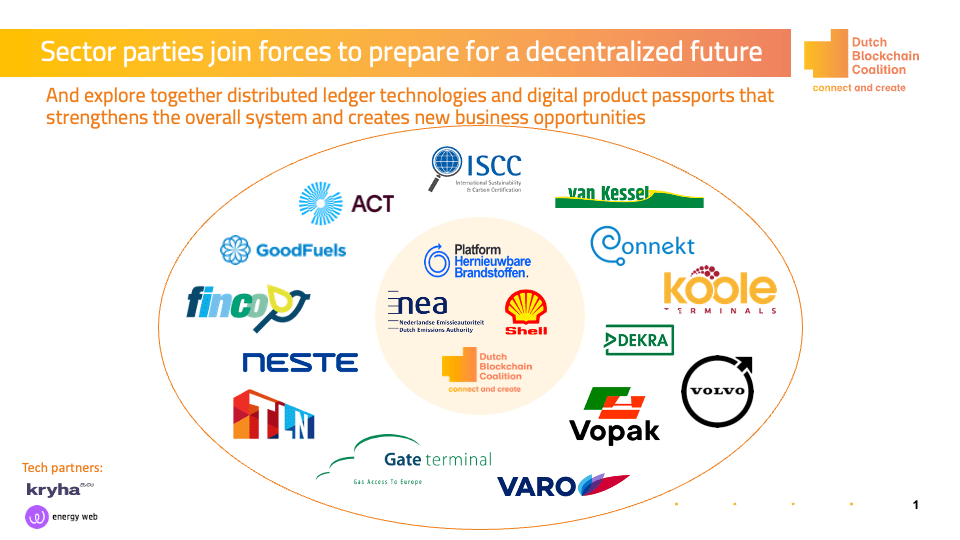For: Dutch Blockchain Coalition
[September 2022 – March 2023]
In this innovation project, sector parties have assessed the use of Distributed Ledger Technologie (DTL) such as blockchain based applications for the renewable fuels industry. studio Gear Up acted as project lead.
The project consortium consisted of fuel suppliers such as Shell, Finco, Varo Energy, Van Kessel Oil, Goodfuels, Gate Terminal, and tank and storage companies Vopak and Koole, The Dutch oversight body, Netherlands Emission authority (NEa), certification scheme ISCC, Volvo, Platform Renewable fuels, Transport Logistics Netherlands, Connekt and studio Gear Up have made use of insights from audit firms such as Dekra and Control Union.
The central question was how to create an open and decentralized system that is ready for a decentralized renewable energy and feedstock system.
With the help of tech company Kryha we have created a functional design of a neutral digital infrastructure for the industry, by the industry. The project has reached a very detailed level for how to create a system with a shared, immutable and tamper-proof record of events, with multiple points of verification. This system creates a single source-of-truth for the registration of renewable fuel volumes in several systems.
Main findings:
Decentral ledgers and product passports can substantially strengthen the current chain-of-custody in sustainability certification.
A decentralized data infrastructure will improve the transparency of the sustainability claims in the supply chain from origin to end-user in a trusted and verifiable way. It will contribute to increased confidence in sustainability claims, will reduce risk in the industry and improve the information about GHG-performance and sustainability for end-users.
Currently, members of the Dutch Blockchain Coalition and Platform Renewable fuels are considering next steps for how to proceed.




